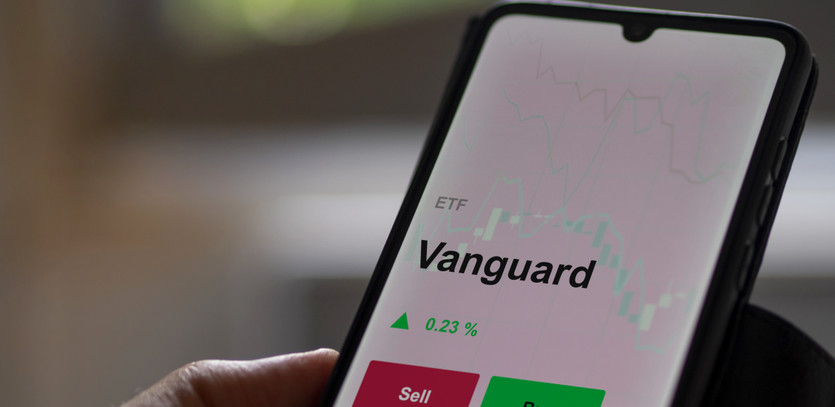An Introduction to Vanguard Investment Options
For individuals plotting a course for their financial future, Vanguard funds can prove to be an astute choice. With a reputation for offering a remarkable assortment of superior, cost-efficient mutual funds and exchange-traded funds (ETFs), Vanguard paves the way for long-term buy-and-hold investment strategies. The versatility of Vanguard's fund collection makes it a preferable option for a diverse range of investors.
Boasting over 200 U.S. funds (inclusive of variable annuity portfolios), and a further selection of more than 220 funds and ETFs targeting markets outside of the U.S., Vanguard presents a diverse portfolio.
Crucial Aspects to Consider
Vanguard has earned a solid standing as a distinguished investment firm, providing a broad spectrum of funds for potential investors to consider. The company’s funds are known for their low expenses, enabling you to retain more of your investment returns.
Whether it's mutual funds, ETFs, or target retirement funds, Vanguard is a viable platform where you can invest your money over an extended period. However, it’s crucial to bear in mind that returns aren't always guaranteed. Therefore, it's advisable to familiarize yourself with the advantages and disadvantages of investing with Vanguard. Also, learn how to select the optimal funds that align with your investment goals before you embark on your investment journey.
Highlighting the Top 10 Vanguard Funds
Here, we spotlight some of the top-performing Vanguard funds worth considering, ranked in no specific order. Each of these funds holds potential for various investment strategies, depending on your risk tolerance and long-term objectives.
1. Vanguard Total Stock Market Index (VTSAX): This fund offers a broad exposure to the entire U.S. stock market, encompassing small-, mid-, and large-cap stocks. With an impressive portfolio that includes over 4,000 stocks, it's a well-diversified option. The fund comes with an expense ratio of 0.04% and requires a minimum initial investment of $3,000 for Admiral Shares.
2. Vanguard Wellesley Income (VWINX): This balanced fund carries a conservative allocation, with about 40% stocks and 60% bonds. This fund may appeal to long-term investors who are cautious about risk, as well as retirees seeking both growth and income. It has an expense ratio of 0.23% and a minimum investment of $3,000.
3. Vanguard 500 Index (VFIAX): As this fund tracks the S&P 500, it holds around 500 of the most significant U.S. stocks. Owning shares in VFIAX means gaining exposure to market giants such as Apple (AAPL), Meta (META), Amazon (AMZN), and Alphabet (GOOG, GOOGL), Google's parent company. This fund is perfect for building a portfolio that includes other stock funds, such as small- and mid-cap funds. It carries an expense ratio of 0.04% and requires a minimum investment of $3,000.
4. Vanguard Total Bond Market Index (VBTLX): While long-term investing often brings to mind stocks, a well-rounded investment strategy will likely incorporate bonds as well. VBTLX offers a diverse, low-cost portfolio comprising more than 10,000 U.S. government and corporate bonds. It carries an expense ratio of 0.05% and requires a minimum investment of $3,000.
5. Vanguard STAR Fund (VGSTX): This fund, known as a "fund of funds," invests in other mutual funds, offering a diversified mix within a single fund option. This makes it a robust choice for novice investors or those seeking a simplified investment solution. The expense ratio for this fund is 0.31%, and it has a lower initial investment requirement of just $1,000.
6. Vanguard Total International Stock Market Index (VTIAX): A well-rounded long-term portfolio usually includes international stock funds. VTIAX tracks an index comprising almost 8,000 non-U.S. stocks, both in developed and emerging markets, offering an expense ratio of 0.11% and requiring a minimum investment of $3,000.
7. Vanguard Growth Index (VIGAX): This fund caters to investors willing to assume higher risk for potentially superior returns over the broad market indexes. VIGAX holds large-cap growth stocks that have historically outperformed the S&P 500 over 10-year periods or longer. It comes with an expense ratio of 0.05% and a minimum investment of $3,000.
8. Vanguard Balanced Index (VBIAX): Part of Vanguard's balanced funds category, VBINX has a moderate allocation of roughly 60% stocks and 40% bonds. Its expenses are 0.07%, and it requires a minimum initial investment of $3,000.
9. Vanguard Mid-Cap Index (VIMAX): Historically, mid-cap stocks have been the goldilocks choice among small, mid, and large-cap stocks, offering better performance over the long run while carrying a lower risk than small-cap stocks. VIMAX provides a diversified exposure to U.S. mid-cap stocks and comes with an expense ratio of 0.05% and a minimum investment of $3,000.
10. Vanguard Target Retirement Funds: These funds offer an all-in-one solution to retirement investing. Each fund is structured with a specific retirement year in mind and maintains a diversified portfolio that automatically adjusts its asset allocation over time. The expense ratios and minimum investments can vary.
Delving into the Pros and Cons of Vanguard Funds
Investing always comes with its share of benefits and downsides. In the case of Vanguard funds, here are some critical pros and cons to consider.
Pros
-
Low-cost, index-based funds: Vanguard's low-cost index funds are capable of replicating specific market index performances, providing a transparent, reliable, and cost-effective investment solution.
-
Diversification: Vanguard offers bond and international stock funds that provide substantial diversification, reducing the overall risk of your portfolio.
-
Availability of ETF versions: Many of Vanguard's mutual funds are also available as ETFs, offering an attractive alternative for those who cannot meet the minimum investment requirements or prefer a more flexible trading option.
Cons
-
Long-term investment strategy: As Vanguard is designed primarily for long-term investments, this means your funds need to stay invested for extended periods.
-
Wide variety of funds: The extensive array of funds means you will need to conduct thorough research to understand each one's specificities and decide which suits your investment needs best.
-
Minimum investment requirement: Many of Vanguard's funds require a minimum investment of $3,000, which might pose a challenge for some investors.
Identifying the Ideal Long-Term Investment
The term "long-term" is often subject to interpretation, but most financial planners agree that an investment period of at least 10 years before you need to access your funds can be designated as a "long-term" investment.
While long-term investments predominantly include stock mutual funds, especially index funds, it's crucial to identify your specific investment objectives and risk tolerance before committing. A balanced portfolio often incorporates a mix of stock and bond funds, and sometimes international funds for added diversification.
Tailoring Your Investment to Your Financial Goals
Understanding your financial goals and risk tolerance is the first step in tailoring your investment portfolio. Index funds often make superior choices for long-term investing, and Vanguard's index funds are considered some of the best in the market, providing wide market coverage at minimal costs.
Which Vanguard funds are most suitable for retirees?
The choice of Vanguard funds for retirees will largely depend on their age, risk tolerance, and income requirements. Younger retirees might lean toward balanced or income funds that offer a mix of growth and income, while older retirees might find bond or target-date mutual funds more appealing due to their lower risk and stable income.
Which Vanguard mutual fund has the best potential for capital gains?
As a rule of thumb, the riskier the fund, the higher the chance for capital gains. Therefore, among stock funds, growth or small-cap funds could offer more capital gains potential than dividend or blue-chip funds. However, it's essential to remember that higher capital gains potential also implies an increased risk of capital losses.





